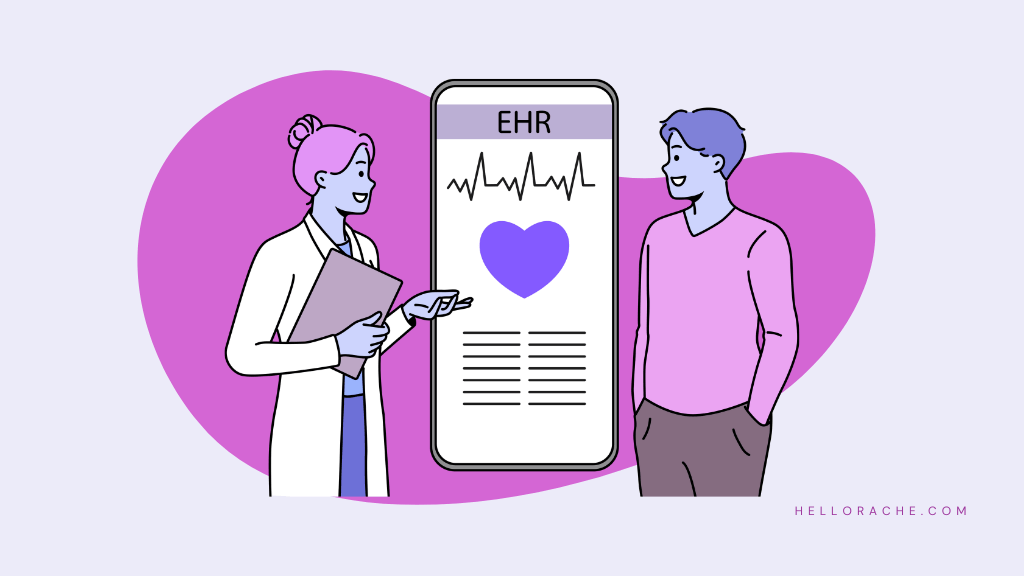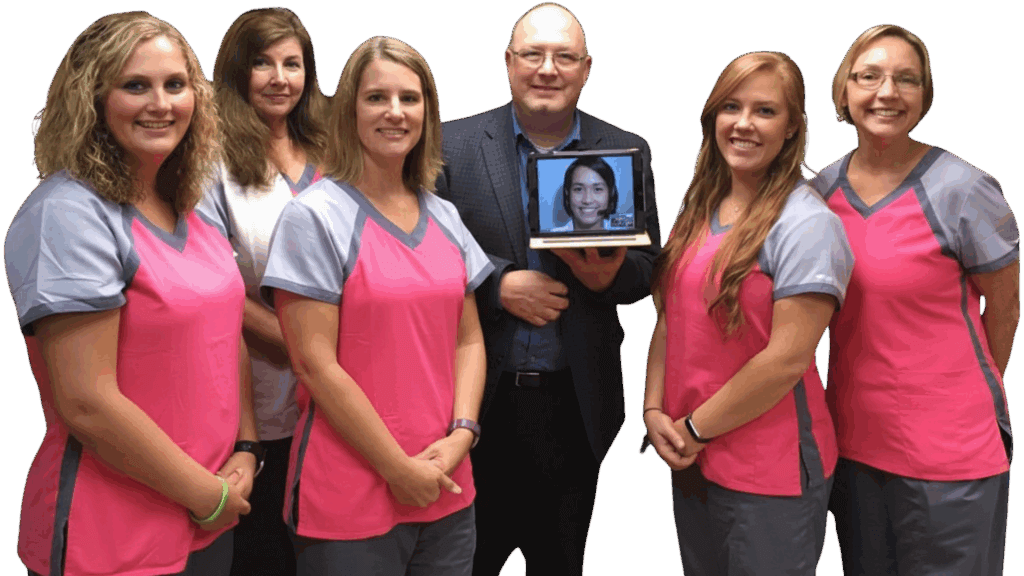Medical assistants have basic clinical and administrative skills. They can be a good asset for practices, clinics, and hospitals.
It’s a role that’s in demand and growing faster than average. Over the next 10 years, the career growth rate for medical assistants is expected to be 16%.
The question is, should you hire a medical assistant? The answer will depend on your unique needs, budget, and goals.
From wage estimates to daily duties, we’ve got everything covered in this article.
You’ll learn whether a medical assistant is right for your healthcare service. We’ll also explain why a virtual assistant could be a better option.
Let’s get started.
What is a medical assistant?
Medical assistants support doctors and other healthcare professionals. They work in a range of settings, including hospitals and medical offices.
Their days are spent on clinical duties and administrative tasks. For example, they update medical records, monitor vital signs, and schedule appointments.
Medical assistants need a high school diploma or equivalent. They also have to complete a medical assistant program. Before they can work in most states, they’ll need certification.
These healthcare workers need excellent interpersonal skills, organization, time management, and attention to detail. Providing a positive patient care experience should be a priority to them.
If you need help in your clinic, you may want to hire a medical assistant. However, there are other options.
A Healthcare Virtual Assistant (HVA) from Hello Rache is a remote solution. Our reliable team can support you with a range of administrative duties. From transcription to answering phone calls, an HVA can fill any gaps in your workforce.
Learn more about our HVA services.
How much does a medical assistant make?
New employees are an investment. So, you may be wondering if a medical assistant is in your budget.
In the US, the average salary for a medical assistant is $17.88 per hour or $37,190 per year.
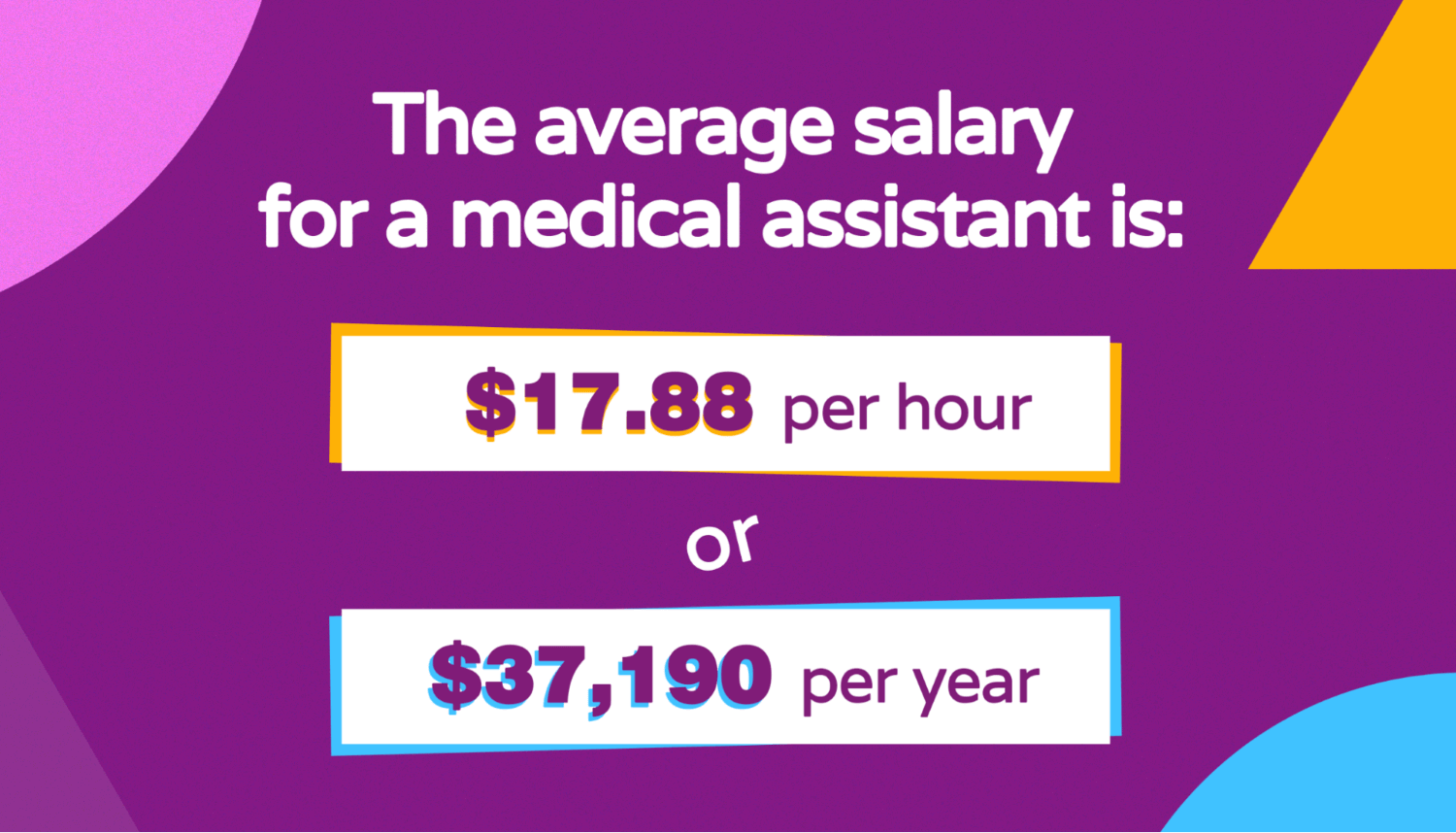
The state with the highest employment rate for this profession is California, with 97,640 medical assistants.
Next is Texas, with 69,370 medical assistants. The average hourly wage in that state is $16.66 per hour.
Medical assistants make the most in Washington State, with an average wage of $22.75 per hour. The District of Columbia isn’t far behind; medical assistants there make $22.45 an hour.
In California, the median wage is $21.53 per hour, and in Massachusetts, it’s $21.25.
If you’re not ready to commit to these types of wages, a Healthcare Virtual Assistant will save you money. You’ll have all the support you need at just $9.50 per hour. You’ll get someone with healthcare experience and computer skills without the financial commitment.
What does a medical assistant do?
What can a medical assistant do for you? Here are some of the top ways they can help your medical practice.
1. Update patient files
Most healthcare clinics use electronic patient records, and there can also be traditional paper records.
These patient files contain a wide range of information. For example, there are personal details like phone numbers and addresses. Plus, there are medical histories, treatment plans, medications, and test results.
Because things can change at any time, it’s important to keep these files updated. A medical assistant will double-check the information and make changes as required.
When medical records are accurate, patients get better healthcare. Fewer mistakes will be made, and the data can be shared between healthcare providers.
Medical assistants know how to maintain confidentiality and keep this information secure.
2. Perform basic procedures
Medical assistants can help with basic patient services. They need supervision, but with the right training, they can also check blood pressure and monitor vital signs.
They can administer medications, give injections, and prepare blood samples for laboratory testing. Plus, they can develop x-rays and get them ready for assessment.
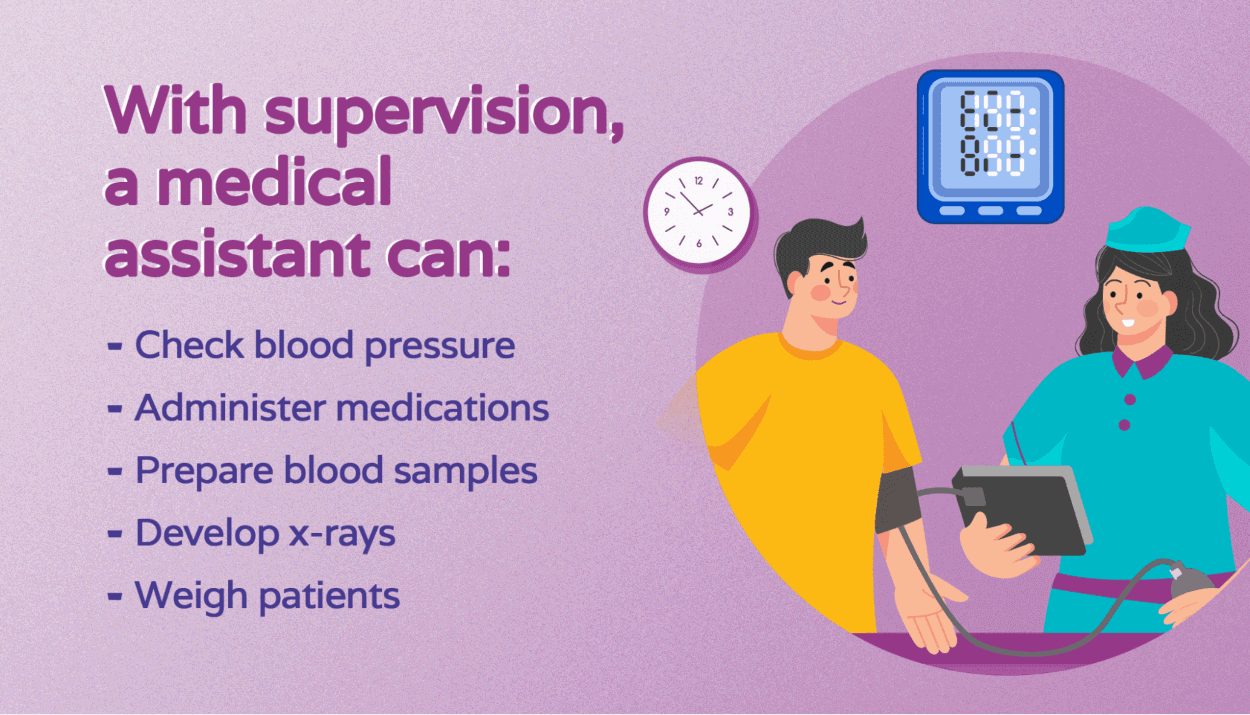
Doctors may need to know more about a patient’s statistics. For example, if a patient is being prepared for surgery, the anesthesiologist may need to know their height and weight. Medical assistants can get this information by weighing and measuring the patient.
Medical assistants also need to keep clear records of procedures, medications, and tests. This requires basic computer skills and attention to detail.
3. Support physicians
Medical assistants can be present during examinations, and they support physicians to ensure optimal patient care. The type of help that’s needed can depend on the work environment.
For example, if it’s a private practice, a medical assistant may take notes and update files after the appointment.
Medical assistants can pass equipment to the physician and make sure any disposable items, such as masks and gloves, are restocked when needed.
They keep the space clean and tidy and disinfect treatment rooms after each patient.
4. Book appointments
Medical assistants can schedule appointments in person, over the phone, or online. They have excellent communication and organizational skills and will make sure your calendar runs smoothly.
Medical assistants can remind patients about upcoming appointments and surgery times. This usually happens the day before and can be via phone or text message.
If a patient cancels, a medical assistant will update the schedule. Sometimes, there’ll be a waiting list, and medical assistants can fill canceled appointments with patients on the list.
When a health professional needs to schedule a meeting or trip away, a medical assistant can take care of the finer details.
A virtual assistant can manage your booking system. If this is the main area you need assistance in, a remote worker could be the right choice.
5. Greet patients
When patients arrive, a medical assistant can be there to greet them. They can confirm their personal details and show them to the doctor’s office.
Medical assistants get patients ready for examinations and procedures. For example, they can bring them a hospital gown and answer their questions.
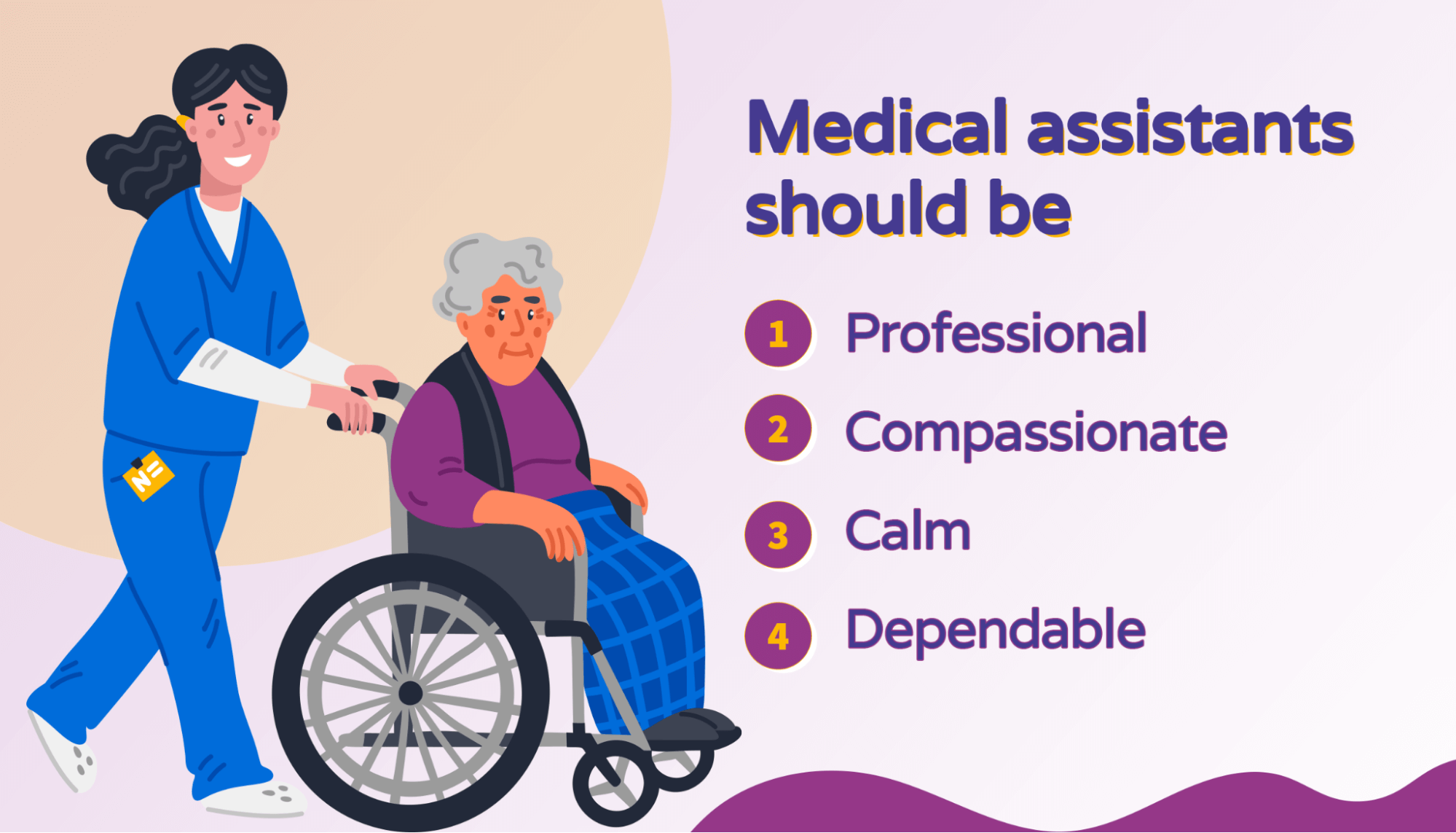
If you’re wondering how to hire a medical assistant to support your patients, there are a few skills you should look for.
A medical assistant should always be professional. Patients may be worried about their health, so someone compassionate, calm, and dependable will put them at ease.
6. Educate patients
Sometimes, patients need to change their habits at home. For example, they may need a new diet after a diabetes diagnosis. Or they may need to start a new exercise regime if they’ve been injured.
Plus, there can be medications, programs, and tests that patients aren’t familiar with.
Medical assistants can support your patients with education programs. They can talk to them about your services and share any relevant information about their aftercare.
They can talk about fees, set up payment plans, and support patients in filling out consent forms.
Could a Healthcare Virtual Assistant be the answer?
Still not sure if you should hire an in-person medical assistant? There’s an alternative.
A Healthcare Virtual Assistant can help with many of the same clerical tasks. So, administrative support can be there whenever you need it.
With Hello Rache, you’ll save time and money. Our experienced team members work remotely and can perform a range of tasks. For example, we can help you schedule appointments, transcribe documents, update medical records, and create invoices.
If you need someone to scribe in real time, our virtual assistants can be in the room with you and your patients. They can do this virtually, via video chat or telephone.
Our virtual assistants come with a flat hourly rate of $9.50. You’ll never have to worry about overtime or benefits, and there are no long-term commitments.
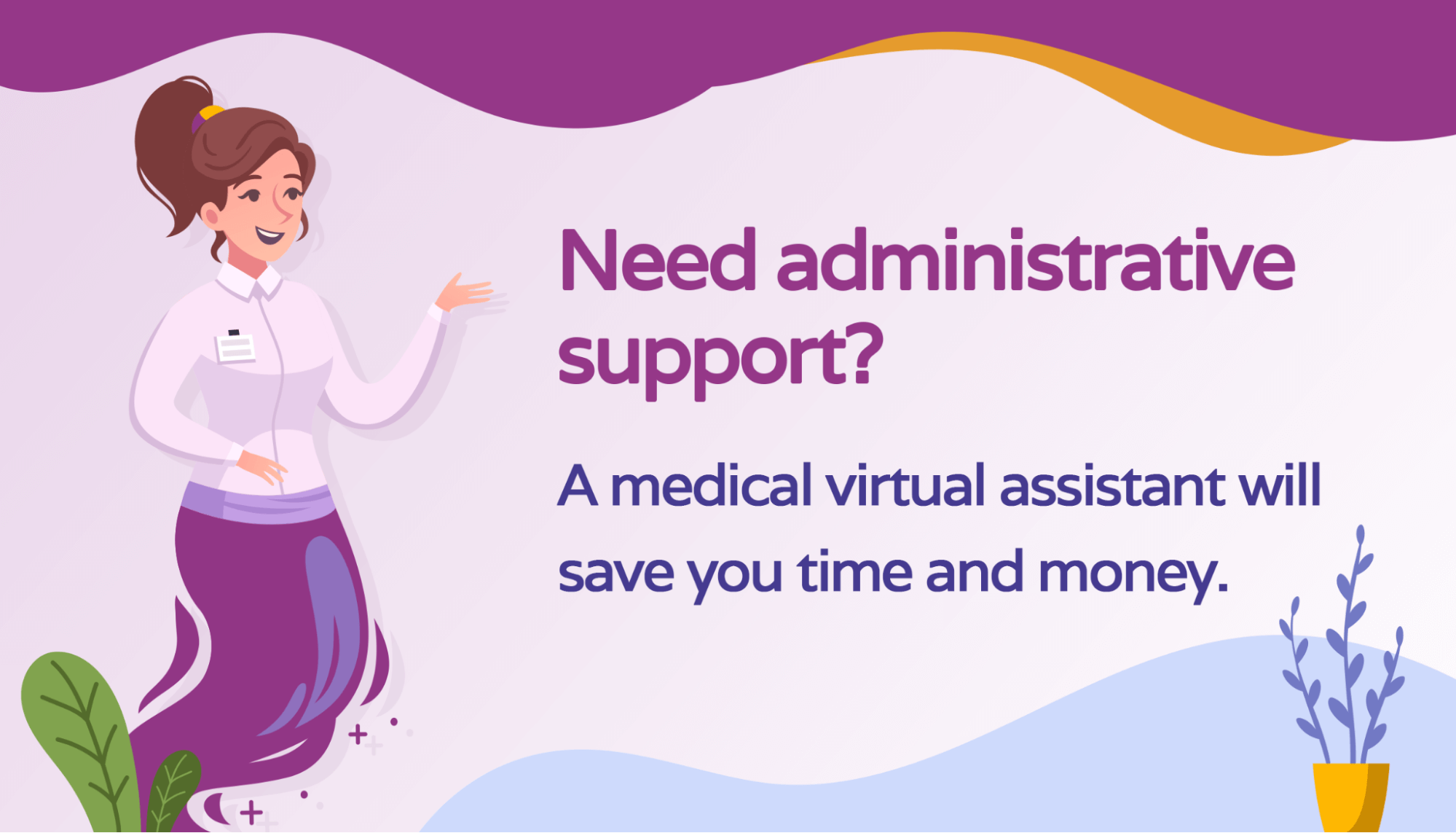
Healthcare practices often use remote team members to support existing in-office workers. When your staff feel overwhelmed by extensive paperwork, that can have a negative impact on their morale. A virtual assistant can reduce their workload and let you focus on your patients.
Our team has HIPAA training and knows how to keep your data secure and confidential. They also have medical knowledge, customer service abilities, and organizational skills. Our virtual assistants are reliable and ready to work, even while working from home.
If you need someone to be physically there and you have the budget for a full-time employee, an in-office medical assistant could be right for you. However, if you’re on the lookout for administrative support with the flexibility to choose your own hours, our virtual assistants would be a good fit.
Hiring a medical assistant
Medical assistants perform both administrative and clinical duties. They update patient files, book appointments, and support physicians.
With the right training, a medical assistant can perform basic procedures, such as giving injections and developing x-rays. They can be there to greet patients and get them ready for their appointments.
Patients may have questions, especially when it comes to new medications and lifestyle changes. Medical assistants can answer those questions and offer the right information.
Medical assistant salaries can vary between states, but there is a more affordable option. Hello Rache has virtual alternatives that are experienced, skilled, and motivated. They can do many of the same duties – virtually.
Book a call to find out more about our services. You can also find more articles on our blog, which is updated regularly and always offers something new to learn.




